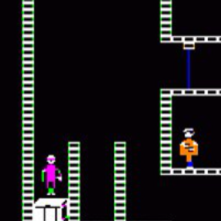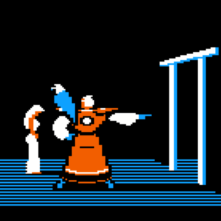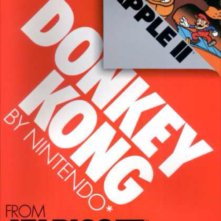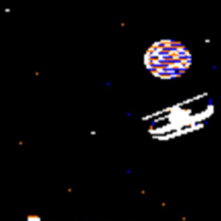Which Apple II games are timeless?
| November 11th, 2019 10:08 AM by Ken Gagne | Filed under Game trail; 10 comments. |
Canadian comedy troupe LoadingReadyRun, true to their eponymous C64 roots, often includes retrocomputers in their weekly news report. This past week was no exception:
Although this news, citing a blog post by Internet Archive employee and KansasFest regular Jason Scott, is specifically about MS-DOS, the concept applies to the Apple II as well: there are at least 3,170 Apple II games currently playable in the Internet Archive — far more than any of us have ever played in our lifetimes or likely ever will.
But how many of them stand the test of time? As Brendan John "Beej" Dery notes in the above LRR report, games aren’t always as fun as we remember them being as kids, when basic inputs returned minimal rewards conveyed with simple graphics and rudimentary sound. Cumbersome controls and user interfaces that we tolerated when we didn’t know any better have evolved into more elegant designs and complex narratives. What games still hold up and can still be fun, with our without a healthy dose of nostalgia?
Instead of focusing on games that haven’t aged well (such as some text adventures or RPGs), I’d argue that these games remain fun:
- Lode Runner: When I was a guest on the New Game Plus podcast three years ago, I invited its hosts to play Lode Runner. Having never played the game before, all three found it enjoyable. Recent iterations of Lode Runner have introduced new graphics, but the core gameplay remains as fun today as it was upon its debut.
- Shadowgate: This point-and-click gothic adventure game was worth remaking in 2012, which improved not just the graphics but also the interface. It would’ve been for naught if the original game weren’t fun. It still is!
- Prince of Persia: While the battle system is somewhat rudimentary, the dungeon platformer is still challenging for those who want to rescue the princess within the allotted time.
- Snake Byte: Variations on this game have appeared on countless devices (especially mobile) for decades — a testament to the basic gameplay’s staying power.
- Arkanoid: Not only does this successor to Breakout stand the test of time — we need more games like this. Paddle input devices have practically gone extinct; while mobile devices seem well-suited to movement on one plane, something is lost with a touch interface.
- BattleChess: Creative animations injected this serious game with levity. The computer’s time to make each move and then draw the animations was tedious; a CPU accelerator fixes that, but it also speeds up the animations, which should be savored.
- DuelTris: The Apple II was young enough that most of its games were original, rather instead of improvements on existing franchises, of which there weren’t many. DuelTris is an exception, taking the basic rules ofo Tetris and adding power-ups, a two-player mode, and a rocking soundtrack. DuelTris struck just the right balance of classic and enhanced gameplay; mess with Tetris more than this, and you ruin it.
- Othello, mahjongg, and other tile games: These classic games feature timeless mechanics that don’t significantly benefit from faster computers or better graphics.
This list is by no means exhaustive; such an undertaking could span an entire website, with one game per blog post! But I would love my readers’ help in filling in the gaps. What are some Apple II games you’ve revisited and found to still be fun, all these years later? Leave a comment with your recommendations!














